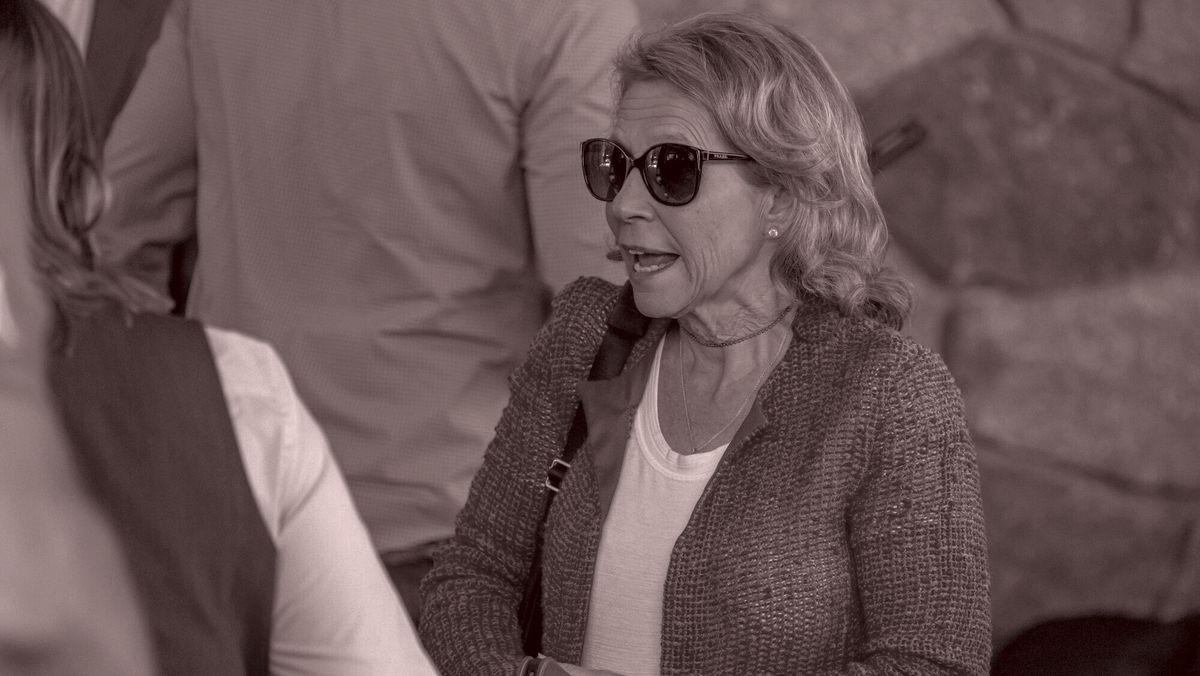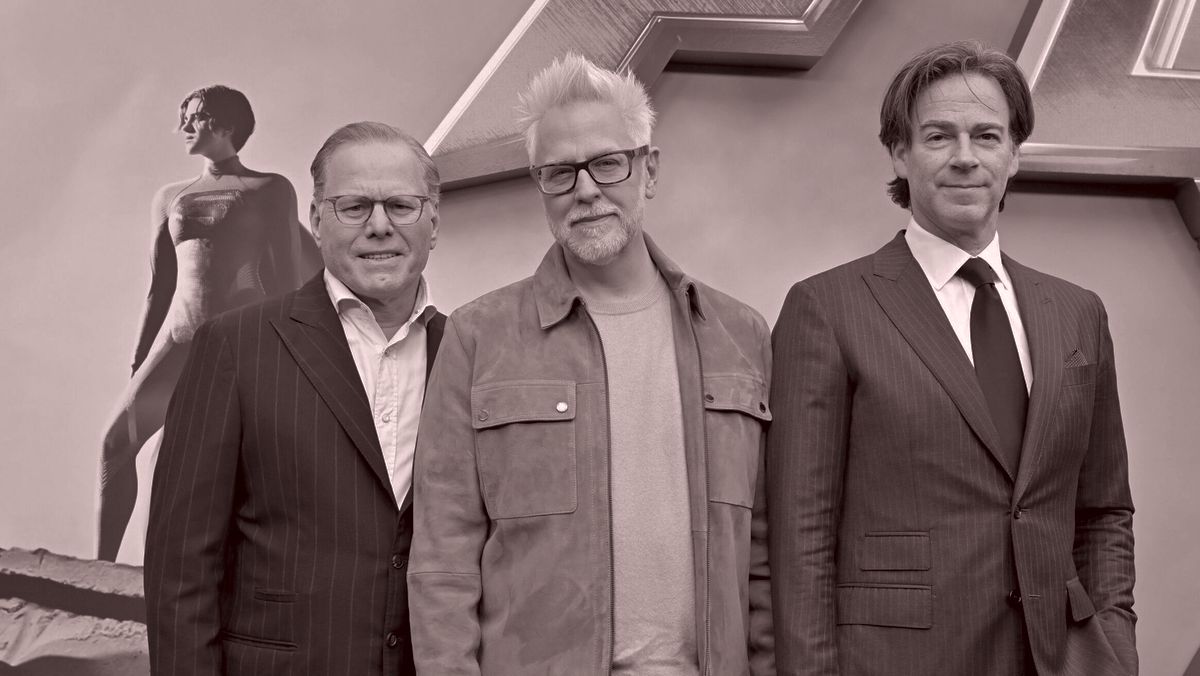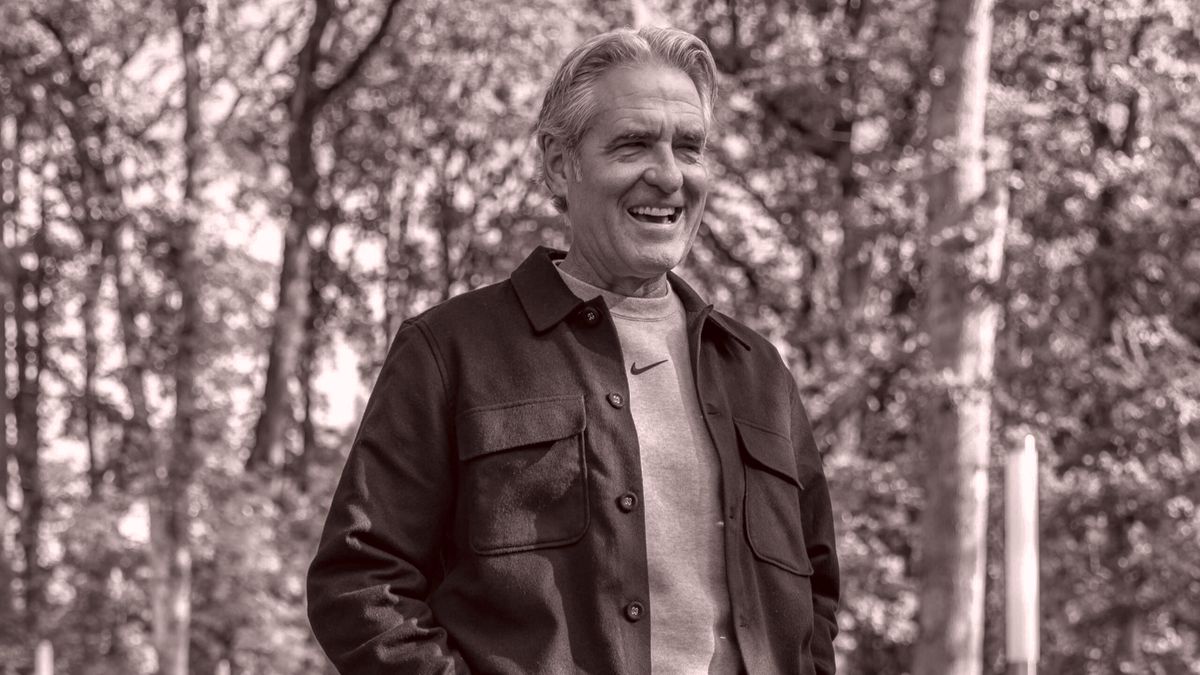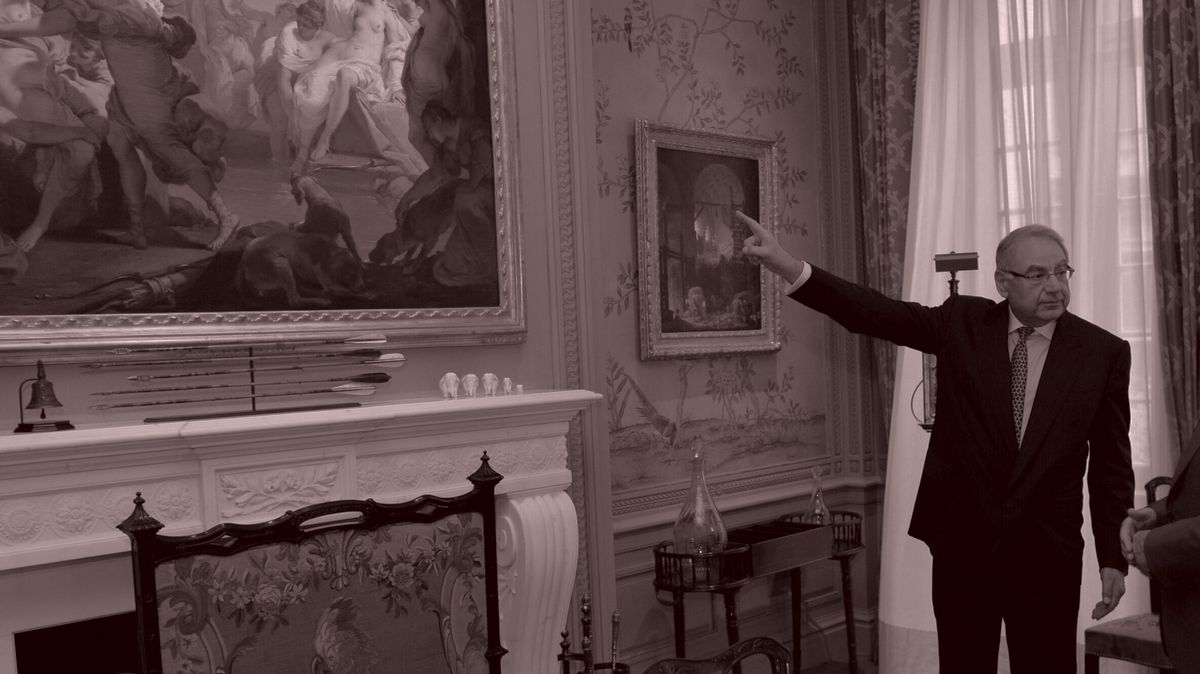Greetings from Los Angeles, and welcome back to In the Room. In
tonight’s email, news and notes on the enduring sturm und drang at CBS News as Shari Redstone readies her Trump settlement, 60 Minutes plays ball with the F.C.C., and network staffers quietly bemoan this utterly depressing state of affairs. Amid it all, are they missing the real story?
Also mentioned in this email: Bill Owens,
Wendy McMahon, David Zaslav, Cesar Conde, Scott Pelley, Andrea Mitchell, Ben Sherwood, Brendan Carr, Anderson Cooper, Lara Trump, Joanna Coles, John Stankey, and many more.
But first…
|
- 🍸 The Grill Room: On the latest episode of the podcast, Chuck Todd joined me for a candid conversation about his departure from NBC News after nearly two decades. We discussed the decline of trust in media, the profound ways that the internet has reshaped news consumption, and the potential for podcasts to evolve into dynamic, multi-hour programming. Follow The Grill Room on
Apple, Spotify, or wherever you get your podcasts. (And, on a related note, congratulations to the incomparable Andrea Mitchell, who
ends her own 17-year run at MSNBC this Friday.)
- The Fox-Trump revolving door: During his first administration, Donald Trump developed a singular, symbiotic relationship with Fox News—using the network as both a megaphone, therapy couch, and an ear trumpet for supplicants attempting to reach an audience of one. This time around, the relationship is even more familial. On Wednesday, Fox News announced that it has hired Lara
Trump, the president’s daughter-in-law and former co-chair of the Republican National Committee, to host a weekend primetime show on the network—the first time a sitting president’s relative has anchored a show on a major television news channel. Of course, Trump’s own cabinet is also heavily staffed with ex-Fox News hosts, including defense secretary Pete Hegseth and transportation secretary Sean Duffy, who began his career on The Real
World. In total, Trump has hired nearly two dozen former Fox personalities and staffers for his administration, several of whom had been actively working for the network.
- Cesar’s ‘challenge’: Apropos of the death of D.E.I. initiatives across the public and private sector since the election, it’s
been almost five years since NBC News Group chairman Cesar Conde introduced his signature plan to reach 50 percent diversity across the organization, including 50 percent women and 50 percent people of color. Conde promised to provide annual reports on the division’s progress on that front, but the network has not done so for several years. A network spokesperson declined to provide percentage figures regarding the division’s makeup, but said Conde’s definition of
diversity had expanded to include race and gender, socioeconomic background, geography, and perspective.
- Visions of Boanna: If you have the time and the inclination, I strongly encourage you to read Business Insider’s 5,000-word piece on Ben Sherwood and Joanna Coles’
effort to save The Daily Beast. The piece, by Claire Landsbaum and Anna Silman, strikes at the heart of the challenge facing the two media veterans—and, indeed, many other seasoned executives attempting to turn around struggling media entities. Namely, they’ve diagnosed the financial challenge without necessarily demonstrating that they’re capable of a solution—or, frankly, that there even is one. There’s also plenty of color from the newsroom. Oh, and, for what
it’s worth, the Barry Diller podcast appearance that is referenced throughout the piece was his December episode on The Grill Room.
- Zaz the world turns: Warner Bros. Discovery chief David Zaslav has listed his Greenwich Village townhouse for $20.9 million, per
Curbed. While David’s primary residence is a Central Park West duplex he bought for $25 million from Conan O’Brien in 2010, he snatched up the West 11th Street townhouse in 2016 to use as an office after his wife, Pam, reportedly grew tired of him taking meetings at home. Note, this is not the townhouse
with the famous Steve McQueen photo, where David and WarnerMedia chief John Stankey struck the deal to merge their two companies. David had rented another West Village townhouse for that deal, since the one he’s now selling was under renovation at the time.
|
Plus, some thoughts on breaking up Comcast, from my partner Bill Cohan…
|
|
|

|
William D. Cohan
|
|
- Got an idea for
you, Brian!: Peter Supino, the respected media analyst at Wolfe Research (and the nephew of my former boss at Lazard), fired a ballsy warning shot at Comcast C.E.O. Brian Roberts this week. In an open letter, Supino suggested that Comcast’s controlling shareholder break up his company into three parts—going much further than Brian’s decision to create a “well-capitalized” SpinCo composed of NBCU’s cable networks, including both
CNBC and MSNBC but minus Bravo. The Supino thesis, a considerable expansion on an idea he first floated five years ago, calls for carving out Comcast’s cable distribution business and combining NBCU and Sky News, in addition to creating SpinCo.
Notably, Supino’s open letter followed Comcast’s disappointing fourth-quarter earnings report, which revealed larger-than-anticipated losses in broadband subscribers, plus flat subscriber growth in its streaming business, causing the stock to
tumble 11 percent in one day. (My partner Matt Belloni offered an acute analysis, as ever, in his recent piece Kabletown at a Krossroads.)
Supino’s note was unprecedented for its audacity, given the fact that the guy is challenging a seasoned management team from his perch as an analyst rather than as an activist
investor with his own capital at stake. And, to be fair, it was filled with compelling ideas. For instance, Supino pointed out that Comcast peers Disney, WBD, and Charter all trade at higher EBITDA multiples. (Disney trades at 13x estimated 2025 EBITDA, WBD trades at 6.7x, and Charter at 6.5x. Comcast, meanwhile, trades at 5.7x.) He noted that if Comcast were weighted proportionately and traded at an average of its multiples, its stock would rise 57 percent. “We believe that
the market discounts Comcast’s value severely because of concerns about returns on capital and instances of misalignment of leadership and shareholders,” he wrote. “We truly believe that as long as Comcast persists as a conglomerate, such concerns are likely to hamper the stock.” (Usual disclosure: This is not investment advice.)
Supino doesn’t see much growth potential in Xfinity, or from the broadcast networks, the cable networks, Peacock, and Sky, unless equity incentives are
reshuffled to better align leadership and shareholders. He was also highly critical of Comcast’s M&A strategy, estimating that Comcast spent $93 billion to acquire NBCU and Sky and to stand up Peacock, and that together they generate $7.5 billion of EBITDA, which the market values at 5.7x EBITDA, or $43 billion—“a $50 billion mark-to-market loss,” he wrote. He was also critical of Brian’s $340 million in cumulative compensation over the past 10 years and failure to invest in the Comcast stock
during that time. His 40.8 million Comcast shares represent 1 percent of the shares outstanding. Meanwhile, he controls 31 percent of the vote.
Supino wrapped up his jeremiad with some familiar notions. “We believe Comcast’s financial strength has provided false comfort to NBCU, and that the business independently funds its own growth investments,” he wrote. “While Universal has made great films and theme parks under Comcast and while Peacock is a beautiful service, NBC Universal
was late to streaming and lacks the scale to win against YouTube, Netflix, Amazon, and Disney. NBCU’s EBITDA of more than $7B is more than enough to fund growth and negotiate potential strategic mergers.”
Anyway, dividing Comcast into three parts is an interesting idea, to be honest, and one that Brian should consider seriously, even if he likely won’t. Supino texted me yesterday that his report “elicited more reads than any company-specific report I’ve ever published. It’s the only time
in my career I’ve ever written an opinion that elicited 100 percent positive feedback.” A spokesman for Comcast declined to comment.
|
|
|
And now, on to the main event…
|
|
|
Inside the agony and finger-pointing at CBS News, where executives and
journalists are protesting Shari Redstone’s eagerness to settle Trump’s suit, countenancing their diminishing place in the firmament, and girding for the F.C.C. to extract maximum political pain.
|
|
|
On Monday, while CBS News was taking the irregular step of acquiescing to a
Federal Communications Commission request for the unedited footage and transcript of Bill Whitaker’s 60 Minutes interview with Kamala Harris, the show’s executive producer was fervently trying to defend the network’s integrity, and his own. In an all-hands meeting, Bill Owens acknowledged that CBS was complying with F.C.C. demands, but asserted that he would not apologize for the editing discrepancy at the heart of the
federal inquiry: the fact that 60 Minutes and Face the Nation each aired different portions of the vice president’s remarks. “The company knows I will not apologize for anything we have done,” he said. “The edit is perfectly fine. Let’s put that to bed so we can get on with our lives.”
Owens’s remarks hardly calmed the waters at CBS, where employees are still quietly rebelling against
owner Shari Redstone’s plan to settle the lawsuit that President Trump brought against the network over the interview. As I reported last week, Shari has privately determined that a low-eight-figure gift to the Trump Presidential Library is a small price to pay to close her tortured $8 billion sale of Paramount. On the other hand, as I also noted, there’s no guarantee that Shari’s capitulation will buy any less scrutiny of the sale. (My partner Eriq Gardner offered a similar assessment yesterday, with characteristic acuity.) Maybe that explains why she hasn’t settled yet, but my latest intel
tells me she still wants to put this to bed.
In any event, Owens’s remarks triggered mixed emotions among the 60 Minutes anchors and correspondents in the room and, eventually, journalists across CBS News. On the one hand, everyone at the network, all the way up to CBS News C.E.O. Wendy McMahon, opposes the settlement and views it as a gross incursion on
press freedom. Some in Monday’s meeting discussed issuing public statements or even resigning, though both Scott Pelley and Anderson Cooper advised their colleagues against such dramatic steps. (Anderson candidly posited that, in today’s media landscape, there were few other places, if any, where they could go and produce similar work.) Some interpreted Owens’s remark as a dare to the parentco to fire him, which might then catalyze an actual
rebellion.
At the same time, not everyone at the network necessarily concurs with Owens’s declaration about “the edit.” Even as they direct their ire toward Shari, many CBS News insiders are also frustrated with Owens for leaving them vulnerable to this situation in the first place. “Is the edit fine?” one CBS News insider asked rhetorically. “It’s obviously an unforced error.” Several
sources said the discrepancy was preventable, and argued that Owens and 60 Minutes should have taken greater care to ensure consistency between the two interview clips, especially given the high stakes of the presidential election and the scrutiny at the time on Harris’s performance in interviews.
In any case, folks can make their own judgments, since both F.C.C. chairman Brendan Carr and
60 Minutes made the raw footage and transcript public on Wednesday. Carr also said that the F.C.C. would open a docket to take public comments on the matter—a move that could set approval of the merger back,
depending on how long the F.C.C. decides to keep the controversy alive. (Yet another punitive measure that suggests Shari won’t necessarily get deal approval by copping to a shakedown.) According to the F.C.C. website, the comment period will be open through March 24, but that doesn’t mean the docket will close then. As Eriq told me, the F.C.C. opened a case on Fox News’s Philadelphia license in August 2023 that didn’t close for 18 months.
|
Meanwhile, the stress around the settlement has stoked all manner of latent
anxieties. In October, when the Harris interview aired and this was still a mere micro-scandal, CBS News sources told me they saw the controversy as evidence that the
Tiffany network was losing its way as it continued to downsize. McMahon had recently expanded Owens’s remit to include Evening News, and staff feared he would become overextended. In a round of layoffs shortly before the 60 scandal, the network laid off Jen DePriest, one of the veteran lawyers responsible for—wait for it—reviewing transcripts in order to ensure the integrity of the broadcast. As you might imagine, all those anxieties
came back to the fore this week.
On some level, these anxieties reflect the blind spots and myopia of television journalists. To scapegoat leadership, organizational changes, or cost-cutting exercises in the legal department is to miss the larger drama, which is that CBS News is a fading division in a fading network within a fading company. Half a century ago, Walter Cronkite might have
had the leverage to sway the outcome of such a high-profile contretemps with the White House; in Monday’s meeting, Pelley told his colleagues that any public displays of protest would be moot, since Trump would almost certainly reframe the narrative to his benefit. Owens and McMahon may disagree with a settlement in principle, but they hardly have the heft or sway to stop Shari and the board. And, frankly, they probably prize their jobs and salaries too much to offer any sort of
profile in courage.
Meanwhile, Owens’s preoccupation with his own response to Trump seems to miss the fact that the real apology gets written on a check. Sure, internal protest beats the alternative, but at the end of the day, no one at CBS has done anything more than bitch and moan on background.
|
|
|
Finally, a media podcast about what’s actually happening in the media—not the oversanitized,
legal-and-standards-approved version you read online. Join Dylan Byers, Puck’s veteran media reporter, as he sits down with TV personalities, moguls, pundits, and industry executives for raw, honest, sometimes salacious conversations about the business of media and its biggest egos. New episodes publish every Tuesday and Friday.
|
|
|
A professional-grade rundown on the business of sports from John Ourand, the industry’s preeminent journalist, covering the
leagues, players, agencies, media deals, and the egos fueling it all.
|
|
|
Need help? Review our FAQ page or contact us for assistance. For brand partnerships, email ads@puck.news.
You received this email because you signed up to receive emails from Puck, or as part of your Puck account associated with . To stop receiving this newsletter and/or manage all your email preferences, click here.
|
Puck is published by Heat Media LLC. 107 Greenwich St, New York, NY 10006
|
|
|
|
















